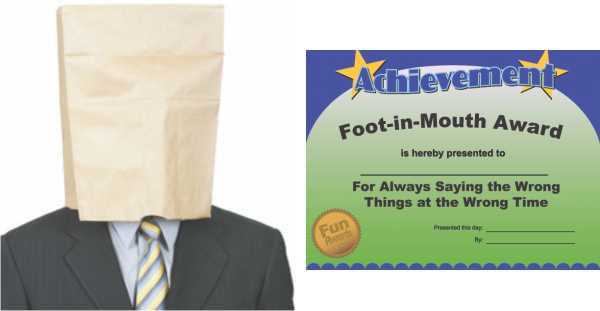| Home - Back Issues - The Team - Contact Us |
 |
| Volume 10 |Issue 48 | December 23, 2011 | |
|
|
Food for Thought Workplace Wild Cards Farah Ghuznavi
In the process, extracurricular activities such as arts and sport are often mercilessly set aside in the interests of having more study-time. In my class at school, one of the best athletes and another girl, who was a very talented artist were both firmly told to sacrifice those interests in order to focus on academic results. Nor were these isolated examples. My best friend's parents took exams so seriously that she wasn't allowed to read any storybooks or listen to music for several weeks before the all-important exams! An interesting irony, however, is that no matter how much you study and how excellent your results are, classroom lessons can only take you so far. Life invariably throws you into situations that the textbooks provide little or no useful advice in dealing with. The capacity for analysis or adaptive thinking that is developed through a good education may of course come in useful in those situations. It's just that there are no "one size fits all" model answers that will help you overcome such problems. You will just have to a work out the solution for yourself; and if you're lucky, you might just about manage to figure it out before anyone else has realised that you have no idea how you got into that situation or, indeed, what to do about it. The first time one experiences this realisation of not 'knowing the answer' can be quite distressing (particularly for good students!). And interestingly, it very often occurs in the workplace. With friends working in very different employment sectors, I'm continually amazed by the diversity of the issues that crop up in various job situations. For me, the first such crisis occurred early on in my career. My boss was on leave and had instructed me to send off a number of standard letters which I was supposed to sign for her (i.e. above her typed name and designation I was to place my own signature and add the word "for", to indicate that I was writing on her behalf). Coping on my own in the office for the first time, I found myself scrambling to get everything done. Just as I was patting myself on the back for having crossed off everything on the list the day before she was due back, I realised to my horror that I had in fact forgotten to include that small but essential "for" when I was signing for my boss! I was terrified: did this mean I had committed fraud by effectively "forging" her signature by signing those letters? Would the recipients of the letters comment on the fact that the signature didn't match the typed name and designation and get in touch with my boss? Would she think I was an incompetent moron when she found out?!
I spent a couple of days agonising over this, and even considered a pre-emptive confession before anyone else contacted my boss about this discrepancy. Luckily, a good friend of mine - with a little more experience of working life - pointed out that no harm had been done as a result of this mistake. "Just leave it alone, unless she actually asks you about it. And if that happens, just tell the truth. She'll understand -you've said she's a reasonable person," he advised me calmly. As it turned out, that mistake had no consequences; and when I "confessed" it to my boss a few years later, she thought it was funny. Thinking back on how I stressed over it, I have to say that by and large the humour of it continues to escape me. Of course, adulthood and additional work experience (not to mention swapping stories with others) soon made me realise how harmless that clerical error had in fact been. The diversity of disaster stories from the workplace is truly mind-boggling. For example, at least I have never experienced any 'incidents' similar to a friend who works in a European Foreign Ministry (I'll spare her blushes by not identifying it). Several people from their department were attending a meeting with the Foreign Minister. So with everyone jockeying around to sit close to him (but wanting to appear not to), my friend came in to find that all the seats were taken - except one immediately next to him. With no alternative, she sat down in the empty chair to his right. Unfortunately for her however, she then made the mistake of muttering under her breath to a colleague that she would have to be mindful of where she was sitting, and of course had to ensure not to reach over and take a chunk out of the delicious-looking sweet roll he was eating. To her utter embarrassment, the Foreign Minister overheard the last part of the sentence and tore off half of the sweet roll, handing it to her! Not wanting to make things even more awkward, she swallowed the roll with some difficulty, wishing the ground would open up and swallow her instead… She might have been somewhat consoled to hear about the experience of my friend Kelly, who is British and is currently working in the Sudan. Before her departure, Kelly was carefully briefed by the international NGO that she works for that she would have to rein in her naturally bubbly personality when dealing with Sudanese government officials, since - like government officials in many parts of the world - they might be more inclined to take offence than to hand over half of their sweet roll in response to any impertinence, intentional or otherwise. Kelly took the advice to heart, and decided to impress her government counterparts by learning a few words of their language that she could strategically drop into the conversation - thereby indicating her goodwill and cultural sensitivity. It didn’t quite work out as she had planned. Aware of the significance of camels in this desert country, Kelly made a point of telling a group of senior government officials that she was a meeting with that "camel" was her favourite word and the newest addition to her vocabulary. As several of them involuntarily spat out the tea they had been drinking, it sank in - to her horror - that the word that she had used (and mispronounced!) while attempting to say "camel" actually meant something quite different…
Copyright
(R) thedailystar.net 2011 |
 A
A